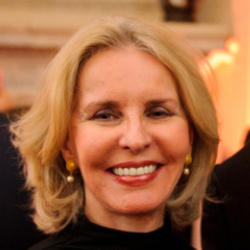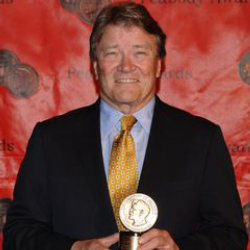Glenn Greenwald Quotations
Glenn Greenwald Quotes about:
-
-
Accept Quotes
There are different ways that kids who are gay take on the rejection and alienation they feel. The way I dealt with it was to say, 'You know what? You're imposing judgments on me and condemnations, but I don't accept them. I'm going to instead turn the light on you and see what your flaws are and impose the same judgmental standards on you.'
-
-
Thinking Quotes
I personally think honestly disclosing rather than hiding ones subjective values makes for more honest and trustworthy journalism. But no journalism - from the most stylistically objective to the most brazenly opinionated - has any real value unless it is grounded in facts, evidence, and verifiable data.
-
-
Benefits Quotes
Many of the benefits from keeping terrorism fear levels high are obvious. Private corporations suck up massive amounts of Homeland Security cash as long as that fear persists, while government officials in the National Security and Surveillance State can claim unlimited powers and operate with unlimited secrecy and no accountability.
-
-
-
Bank Quotes
I've always thought stability was suffocating and deadly. Like, when I read that the kids I went to law school with have stayed at the same firm, I feel like I'm reading an obituary. How much money do you need? Six million, seven million? Put that in the bank and do something else. Get out!
-
-
-
Cultural Quotes
Embedded in 'The New York Times' institutional perspective and reporting methodologies are all sorts of quite debatable and subjective political and cultural assumptions about the world. And with some noble exceptions, 'The Times,' by design or otherwise, has long served the interests of the same set of elite and powerful factions.
-
-
-
-
-
Breeds Quotes
There's a huge dichotomy between people who grow up with alienation, which, for me, was invaluable, and people who grow up so completely privileged that it breeds this complacency and lack of desire to question or challenge or do anything significant. Those are the types of people who become partners at the corporate law firms.
-
Anyone Quotes
It is beyond dispute that President Obama and his aides have an extreme, even unprecedented obsession with concealing embarrassing information, controlling the flow of information, and punishing anyone who stands in the way. But, at least theoretically speaking, it is the job of journalists to impede that effort, not to serve and enable it.
-
Accused Quotes
The core distortion of the War on Terror under both Bush and Obama is the Orwellian practice of equating government accusations of terrorism with proof of guilt. One constantly hears U.S. government defenders referring to 'terrorists' when what they actually mean is: those accused by the government of terrorism.
-
-
-
-
-
Clear Quotes
The highest compliment one can give a writer is not to say that one wholeheartedly agrees with his observations, but that he provoked - really, forced - difficult thinking about consequential matters and internal questioning of one's own assumptions, often without quick or clear resolution.
-
-
-
-
-
-
-
-
Certain Quotes
Even if we're not doing anything wrong, there are certain things we want to do that we don't think can withstand the scrutinizing eye of other people. And those are often the most important things that we do. The things we do when other people are watching are things that are conformist, obedient, normal, and unnotable.
-
-
-
Branded Quotes
We know with certainty that the Obama administration has re-defined 'militants' to include any military-age males they kill regardless of whether they were actually doing anything wrong. We know with certainty that the U.S. Government has detained and publicly branded as 'terrorists' people they knew at the time were innocent.
-
-
Debate Quotes
There's a perennial debate about whether the propagandistic tripe produced by establishment media outlets is shaped more by evil or by stupidity. Personally, I think it's both: a healthy dose of each is needed. The system design is malicious, while those who serve as its public face are generally vacant.
-
-
-
-
-
-
-
-
Clear Quotes
Long before, and fully independent of, anything Congress did, President Obama made clear that he was going to preserve the indefinite detention system at Guantanamo even once he closed the camp. President Obama fully embraced indefinite detention - the defining injustice of Guantanamo - as his own policy.
-
-
-
-
Asylum Quotes
The point of asylum is not to declare to the world what country you think is the pinnacle of civilization. The point of asylum is to find a country that's both willing and able to protect you from political persecution. In no way is asylum an endorsement of a country's politics, laws, or values.
-
-
-
-
-
-
-
-
-
-
-
-
-
-
-
-
Allow Quotes
We know that U.S. voters, and world leaders, allow Obama extraordinary leeway when it comes to deadly drone strikes, precisely because of his politics, character and background. (We are talking about a man, after all, who won the Nobel Peace Prize while ordering the automated killing of suspected Muslim terrorists around the world).
-
-
-
-
-
-
-
-
-
-
-
-
-
-
-
-
-
-
-
-
-
-
-
-
-
-
Meaningful Quotes
The Obama administration already claims the power to wage endless and boundless war, in virtually total secrecy, and without a single meaningful check or constraint. No institution with any power disputes this. To the contrary, the only ones which exert real influence - Congress, the courts, the establishment media, the plutocratic class - clearly favor its continuation and only think about how further to enable it.
-
-
Names Quotes
The second term of the Bush administration and first five years of the Obama presidency have been devoted to codifying and institutionalizing the vast and unchecked powers that are typically vested in leaders in the name of war. Those powers of secrecy, indefinite detention, mass surveillance, and due-process-free assassination are not going anywhere. They are now permanent fixtures not only in the US political system but, worse, in American political culture.
-
-
-
-
-
-
-








